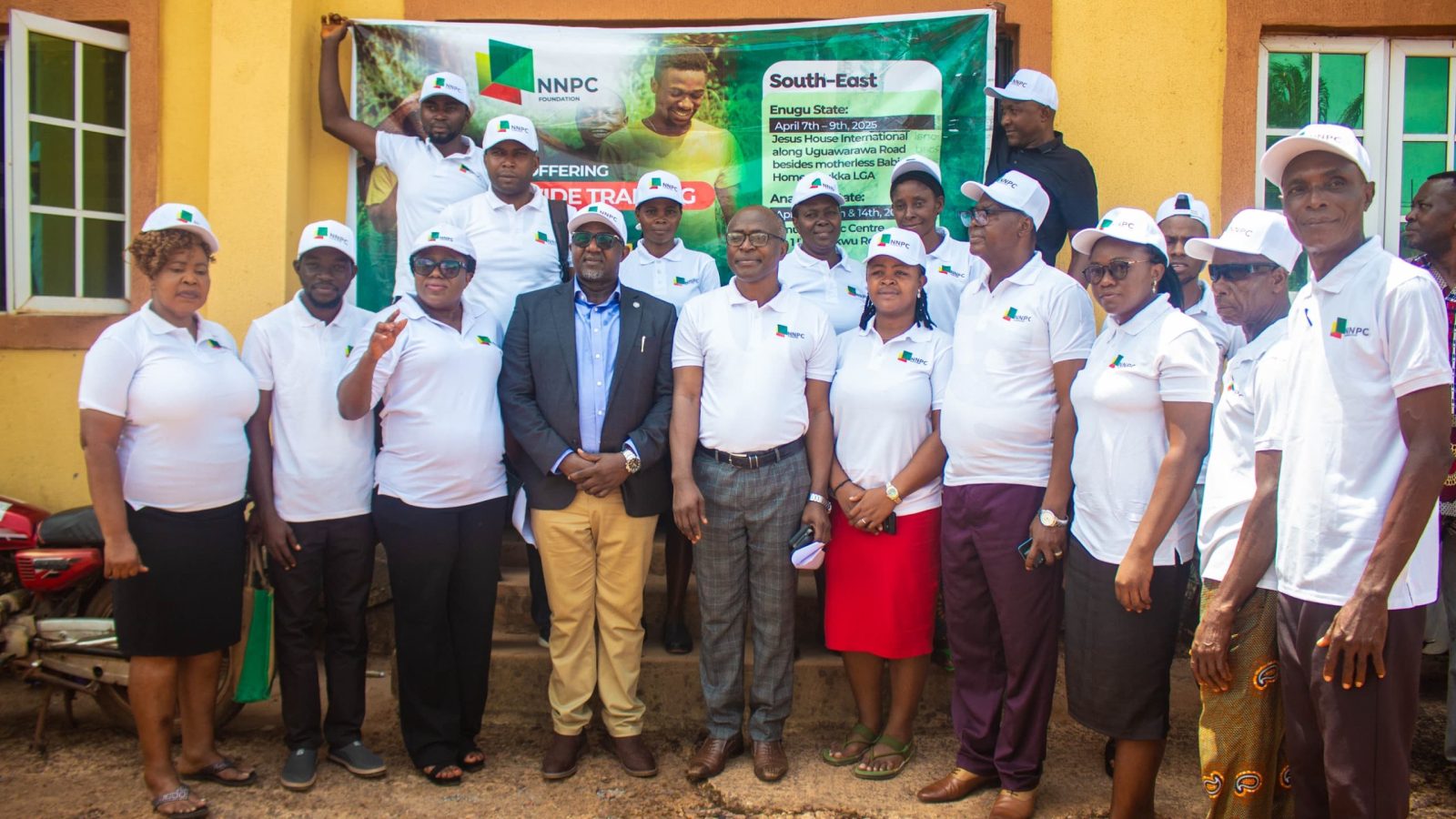The NNPC Foundation, the Corporate Social Responsibility arm of the Nigerian National Petroleum Company Limited, has launched a comprehensive agricultural training initiative for 6,000 vulnerable farmers across Nigeria’s six geopolitical zones.
This programme aims to enhance food security, increase productivity, and improve the livelihoods of smallholder farmers.

According to Mrs. Emmanuella Arukwe, the Managing Director of the NNPC Foundation in Enugu on Tuesday, the initiative is a response to the pressing issue of food insecurity in Nigeria, where an estimated 31.5 million people face food insecurity, according to the Cadre Harmonisé Report (March 2024).
Persecondnews reports that Nigeria faces a severe food insecurity crisis, with millions struggling to access adequate food, exacerbated by factors like conflict, climate change, and economic hardship, leading to rising food prices and malnutrition, particularly among children and pregnant women.
The Northeast states of Borno, Adamawa, and Yobe, as well as the northwest states of Zamfara, Katsina, and Sokoto, are particularly affected by food insecurity and conflict.

Approximately 5.4 million children and nearly 800,000 pregnant and breastfeeding women are at risk of acute malnutrition or wasting.
The NNPC Foundation training will focus on modern, climate-resilient farming techniques, soil and water management, organic fertilization, and post-harvest loss reduction strategies.
The programme is designed to equip farmers with the tools, knowledge, and resources needed to transition from subsistence farming to commercial-scale production. This will be achieved through a two-phase approach:
– Phase One: South East, South South, and South West zones
– Phase Two: North Central, North West, and North East zones

The training will be conducted in local dialects to ensure language is not a barrier to learning.
The NNPC Foundation’s initiative aligns with the Federal Government’s agricultural transformation agenda, which seeks to enhance food security, increase productivity, and improve the livelihoods of smallholder farmers.
Arukwe noted that this effort is part of the foundation’s broader commitment to implementing impactful programs that support national priorities.























Leave a comment